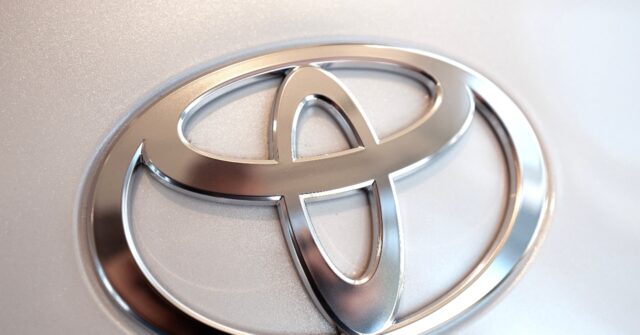Toyota reported a small rise in net profits on Thursday as a weak yen and cost cuts helped the Japanese auto giant overcome a drop in production and sales in its home market.
The firm said first-quarter net income rose 1.7 percent to 1.33 trillion yen ($8.9 billion) and operating profit jumped 16.7 percent to 1.31 trillion yen. Revenues climbed 12.2 percent to 11.8 trillion yen.
The world’s largest automaker by sales also stuck to its full-year forecasts, predicting net profit of 3.57 trillion yen, marking a drop of 27.8 percent, on sales of 46 trillion yen, which would be a gain of 2.0 percent.
Toyota said the rise in profit was “despite a decrease in production and sales volume in Japan, due to the effects of foreign exchange rates and cost reduction efforts”.
“Despite the inability to maintain stable production in Japan due to factors such as certification issues and recalls, we achieved an increase in profit, thanks to the support of all our stakeholders, including suppliers and dealers,” a statement said.
In June, the government instructed five firms — Toyota, Honda, Mazda, Suzuki and Yamaha — to stop delivering certain vehicle models within Japan because of certification issues.
This week Toyota was also slapped with a correction order by the transport ministry over a failure to comply fully with national vehicle inspection standards.
That followed inspections in June by officials at its headquarters in the central Aichi region to probe breaches declared by the company related to domestic shipment certifications.
Toyota last year reported record bumper results, with net profit doubling to 4.94 trillion yen and revenues soaring by a fifth to 45.1 trillion yen.
The results were driven by strong sales of hybrid vehicles — which combine internal combustion engines and batteries — an area that Toyota pioneered with the Prius.
Electric challenge
But it has been criticised along with other Japanese automakers for being slow to embrace purely battery-powered vehicles, allowing firms like Tesla and China’s BYD to steal a march and gain market share.
However, there are signs consumers are going cold on pure EVs because of high prices and worries about reliability, range and a lack of charging points.
The firm is also hoping to mass-produce solid-state batteries, a potential game-changing technological breakthrough that could mean faster charging times and greater range.
On Thursday Toyota’s rivals Honda and Nissan said that they would cooperate on research in batteries for EVs and other areas.
The news follows an announcement in March that they were exploring a “strategic alliance” to join forces to cope with a “once-in-a-century” upheaval in the car industry.
Japan’s number two and three automaker also confirmed in a statement that Mitsubishi was considering teaming up with them.
“The partnership was initiated when the top management of both companies recognised that the global automotive industry is undergoing dynamic structural changes due to technological innovations in intelligence and electrification, and that companies that cannot cope with these changes will be eliminated,” Honda CEO Toshihiro Mibe told a news conference.
“The Japanese auto industry, like many others globally, is facing unprecedented challenges. These challenges include the rapid transition to electric vehicles, stringent environmental regulations, and intense competition from both established foreign carmakers and new entrants, particularly from China and the US,” Bloomberg Intelligence analyst Tatsuo Yoshida told AFP.
“While alliances can provide significant benefits, the success of such collaborations will depend on effective integration and execution,” he said.








